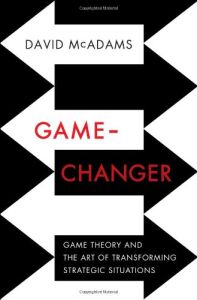People, businesses and nations play a nonstop series of games, with stakes such as staying out of jail, gaining or controlling market share, or even winning wars. Games pervade your life, and if you don’t recognize them, you get played. Duke University game-theory professor David McAdams urges you to learn “game-awareness.” His examples are clear, easy and fun to read, even though much of the material is a little obvious and seems directed to those who are not very experienced in discerning how game playing patterns manifest in business. getAbstract recommends McAdams’s approach to those interested in learning how game theory shows up just about everywhere, most notably, in strategic thinking.
“Change the Game”
Games pervade your life. They are the undercurrent in business and personal affairs even when participants may not be conscious of their roles as players. Recognizing games gives you a strategic advantage in work and life. Game-awareness means being cognizant of the types of game in play so that you can stage and change games to your advantage.
Spanish conquistador Hernán Cortés famously burned his fleet after arriving on the coast of Mexico in 1519. This eliminated any chance of his soldiers being able to retreat in the face of an Aztec army many times larger than theirs. However, Cortés left one ship afloat. He offered anyone the opportunity to “return to Cuba.” By sparing that lone ship, he forced his men to choose between appearing cowardly and staying to fight. Games like these in war, business or politics share in the most famous game of all: the “Prisoners’ Dilemma.”
The Prisoners’ Dilemma
Two men get caught committing a crime. The punishment is five years in jail. The police believe they also committed a more serious crime for which the penalty is 20 years. Questioned separately, the prisoners receive the same offer: Admit to...


















Comment on this summary